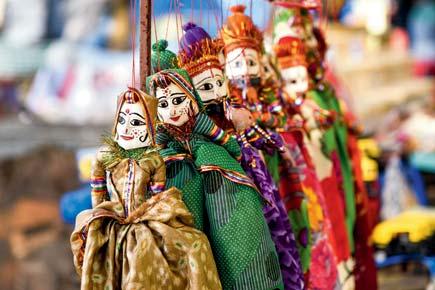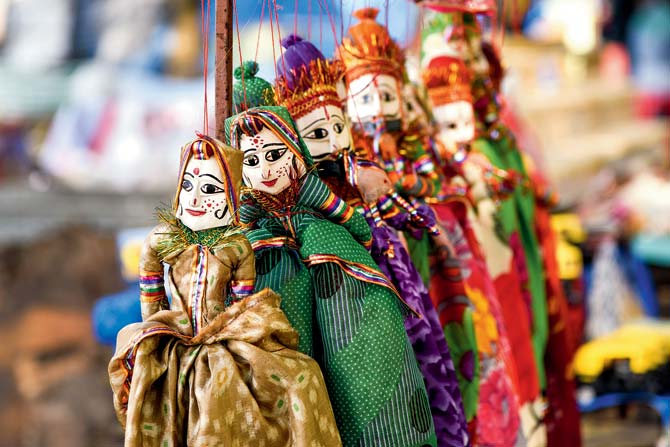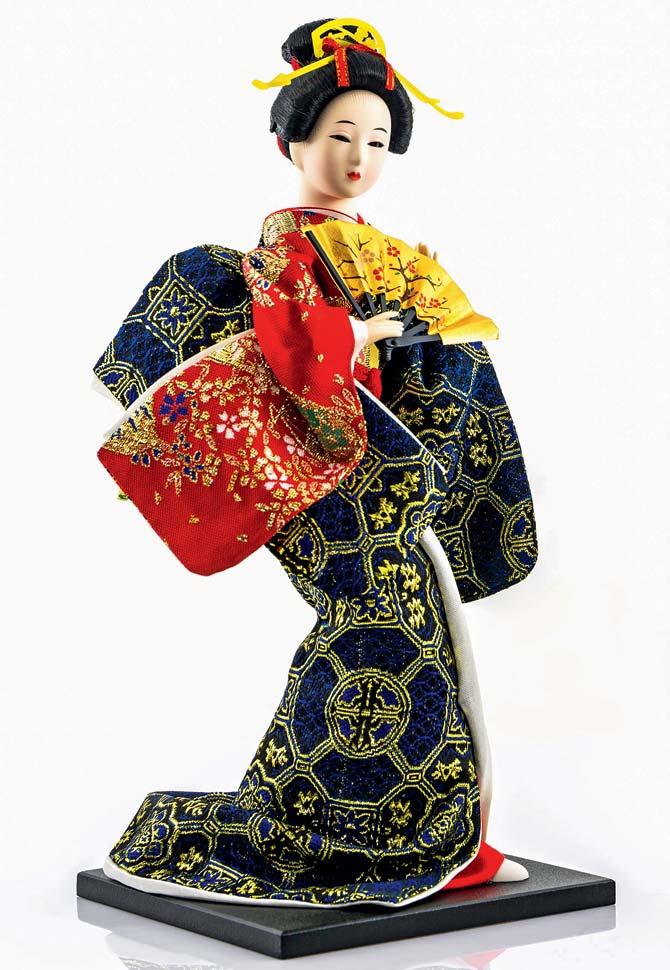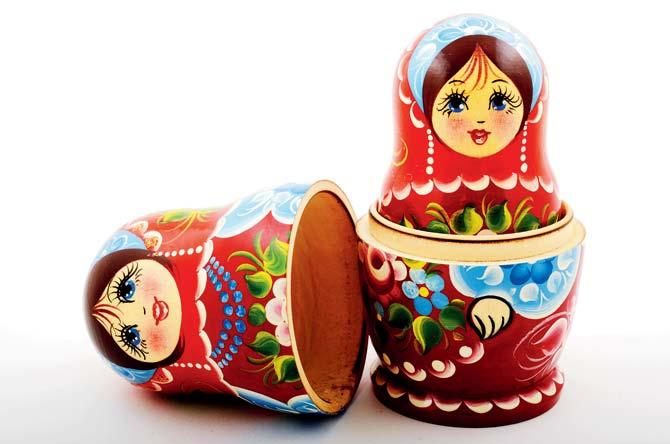Stories, myths and colour will greet visitors at an exhibition of dolls from across the globe


Rajasthani string puppets
ADVERTISEMENT
Native American dolls made out of cornhusk do not have faces. The Spirit of Corn, goes a traditional explanation, made a doll out of her husks to entertain children. This doll, which was given a beautiful face, spent much of her time admiring her loveliness instead of being with children. As a result, her creator took her face away.

Japanese doll
A wealth of such stories on the cultural significance of dolls, their role during childhood, their history and evolution along with a unique collection of the little human figurines from around the world will find a spot in Vividha 2017, the annual festival of the Department of Ancient Indian Culture, History and Archaelogy, St Xavier’s College.

Matryoshka dolls
“Every year, our focus for the festival is rooted in various cultures and civilisations. While Bahuli: Dolls Across the Globe, our theme for this year, will capture this colourful little world, it also aims to draw attention to the many childhoods being lost to the wars plaguing humanity,” shares Dr Anita Rane-Kothare, the head of the department, who has been organising the festival for 16 years. “There is also a growing loss of innocence and through these dolls, we wish to bring back an indelible memory of childhood,” she adds.
While many of the dolls have been sourced from Dr Rane’s personal collection, the department also requested consulates of various countries located in Mumbai to share dolls for the festival. There will be dolls from Japan, where they represent an item of veneration and are even considered living creatures; the famed matryoshkas from Russia that are a set of wooden dolls of decreasing size placed one inside another; the Kandyan dolls of Sri Lanka inspired by a native traditional dance form; Santons or hand-painted terracotta figurines that adorn Nativity scenes in the Provence region of France, as well as dolls from Brazil, Germany, Egypt among other nations.
India’s own rich heritage of dolls will be part of the festival, too. “We travelled to Telangana to pick up some of the Bommai Golu figurines that form a part of the doll display during Navratri in South India,” says Dr Rane. A traditional kathputli ka khel featuring Rajasthan’s string puppets has been included in the line-up as well.
To be inaugurated by Dr Pheroza J Godrej, chairperson, Museum Society of Mumbai, the festival is known for its regional food stalls too. This year, housewives striving to be independent will serve traditional Maharashtrian fare like kajupoli, prawns bhajji, fish curry, etc.
 Subscribe today by clicking the link and stay updated with the latest news!" Click here!
Subscribe today by clicking the link and stay updated with the latest news!" Click here!






